Examinemos la fuerza de las normas jurÃdicas. Reflexiones reales para las cuestiones legales
Keywords:
Codificación, legitimidad, fuerza, autoridadAbstract
This article aims to show from real and practical facts the problem of force, and evidencing that there are norms with different legal qualities, that is, when by certain operative actions they acquired the quality of legitimate or illegitimate norms and in such a case they harm positively. or negative its own normative force. Additionally, possible answers will be presented regarding two things: the reason for the anomalies in the legitimacy of the norm that weaken its force, and why estimate the force as a necessary element, responding in some way to that classic discussion regarding its controversial utility.
To achieve these tasks, 7 sections will be developed. The first section will briefly present how the force reached a position in the law, even to the fact of considering it as a legitimate element, differentiating itself from illegitimate forces. The second section exposes the definition of authority that accounts for obedience, the type of norm that represents it, favors it, strengthens it, and the criteria that distinguishes it. The third section explains legally why, due to application, procedural and
foundational issues, a set of norms does not have the quality of legitimate norms, impairing their legal force and the other set of norms is legitimate while conserving its power of coercion, in both cases the force of the norm is not the same, then, with the passage of the subsequent paragraphs, to estimate the importance of the really valid norms, they benefit the quality of the force. The fourth section presents the concept of the force of law and will be defended as an essential element. The fifth section will demonstrate and determine the different legal qualities and the identification of another type of force. The sixth section will demonstrate that, due to the scope of the rules, the inconveniences rise to other levels, causing deep confusion. The seventh section presents the reflections on why the norms suffer these variations in their legitimacy.
References
BOURDIEU, Pierre y TEUBNER, Gunther. La Fuerza Del Derecho. 20 ed. Bogotá D.C.: Siglo del Hombre Editores, 2005. https://revistas.unal.edu.co/index.php/recs/article/download/11059/11725/26352
BOBBIO, Norberto; MATTEUCCI., Nicola y PASQUINO, Gianfranco. Diccionario De PolÃtica. Traducido por CRISAFIO, Raúl; GarcÃa, Alfonso; Marti, Miguel. 6 ed. México: Grupo Editorial Siglo Veintiuno, 1991. p. 118. https://www.iberlibro.com/Diccionario-Pol%C3%ADtica-A-J-L-Z-Suplemento-Norberto/21866068925/bd
BROWN, Garrett W, MCLEAN, Lain y MCMILLAN, Alistair, A Concise Oxford Dictionary Of Politics And International Relations. 4 ed. Gran Bretaña: Oxford university press, 2018. https://www.oxfordreference.com/view/10.1093/acref/9780199670840.001.0001/acref-9780199670840
BERNAL PULIDO, Carlos. Derechos, Cambio Constitucional y TeorÃa JurÃdica. Escritos de Derecho Constitucional y TeorÃa del Derecho. No.20. Bogotá D.C.: Universidad Externado de Colombia, 2018. https://publicaciones.uexternado.edu.co/gpd-derechos-cambio-constitucional-y-teoria-juridica-escritos-de-derecho-constitucional-y-teoria-del-derecho-9789587729665.html
BOBBIO, Norberto. Estado, Gobierno y Sociedad. Por Una TeorÃa General De La PolÃtica. Traducción de FERNÃNDEZ SANTILLÃN, José F. 15 ed. México: Fondo de Cultura Económica, 2012. https://lecturasddhh.files.wordpress.com/2016/08/bobbio-norbertoestado-gobierno-y-sociedad-caps-2-4.pdf
CÃCERES TOVAR, VÃctor M. y VALBUENA BATANERO, MarÃa f. El Estado Constitucional De Derecho En Colombia y Su Incidencia En El Sistema JurÃdico. En: Las Fronteras De La Justicia. 2020. No. 21, p. 34-35. Disponible en: https://libros.cecar.edu.co/index.php/CECAR/catalog/view/20/75/612-3
DWORKIN, Ronald. Los Derechos En Serio. Traducido por GUASTAVINO, Marta. 2 ed. España.: Editorial Ariel, 1989. https://fundacion-rama.com/wp-content/uploads/2022/04/1691.-Los-derechos-en-serio-Dworkin.pdf
ENGELS, Federico. El Origen de la Familia, la Propiedad Privada y el Estado. Grupo de Traductores de la Fundación Federico Engels. 1ed. Madrid: Fundación Federico Engels, 2006. https://dialnet.unirioja.es/servlet/libro?codigo=285154
GONZALEZ, Norberto Ã. La Fuerza en el Derecho En: CrÃtica JurÃdica Revista Latinoamericana De PolÃtica, FilosofÃa y Derecho. 1987. Tomo IV, p. 325-368. Disponible en: https://www.boe.es/biblioteca_juridica/anuarios_derecho/anuario.php?id=F_1987
HART, H. L. A. The Concept of Law, citado por BARDEN G. y MURPHY T. Of the Force of Law. En: Úlfljótur University Of Iceland Law Journal. Noviembre, 2012. Vol. 62. p. 45. Disponible en: https://papers.ssrn.com/sol3/papers.cfm?abstract_id=2178248
HILB, Claudia. ¿Cómo fundar una comunidad después del crimen? Una reflexión sobre el carácter polÃtico del perdón y la reconciliación, a la luz de los juicios a las juntas en la Argentina y de la Comisión de la Verdad y la Reconciliación en Sudáfrica. En: Revista Discusiones. 2013. vol. 12, no. 1, p. 35-43. Disponible en: https://revistas.uns.edu.ar/disc/issue/view/208
KELSEN, Hans. TeorÃa General Del Derecho y Del Estado. Traducido por GARCÃA MÃYNEZ, Eduardo. 5 ed. México: Universidad Nacional Autónoma de México, 1995. https://clea.edu.mx/biblioteca/files/original/7b4d486d917ba42ff21a36b27b0b41cc.pdf
MONROY CABRA, Marco Gerardo. Conexión entre el derecho, la moral y la polÃtica. En: Revista Academia Colombiana De Jurisprudencia. Diciembre, 2020. vol. 1, no. 372, p. 405-409. Disponible en: https://revista.academiacolombianadejurisprudencia.com.co/index.php/revista_acj/article/view/164
OCAMPO ARROYAVE, Juan Camilo. El Derecho Normalizado: Interpretación, Estructuración Y Valoración Normativa. 1 ed. Pereira: Arpi Artes Gráficas. 2018. p. 194-193. https://directorio-empresas.einforma.co/informacion-empresa/arpi-artes-graficas-sas
RIVAS PALA, Pedro. Perdón, Derecho y PolÃtica. Consideraciones a Propósito de la Truth and Reconciliation Commission. En: Revista De TeorÃa y FilosofÃa Del Derecho. Abril, 2011. No. 34, p. 42-43. Disponible en: https://www.researchgate.net/publication/317438725_Perdon_derecho_y_politica_Consideraciones_a_proposito_de_la_Truth_and_Reconciliation_Commission
SHAPIRO, Scott J. Autoridad. En: Revista Derecho Del Estado. Julio-diciembre, 2013. No. 31, p. 20. Disponible en: http://www.scielo.org.co/scielo.php?script=sci_arttext&pid=S0122-98932013000200001
SCHAUER, Frederick. Fuerza De Ley. Traducido por RAPETTI, Pablo Ariel. 1 ed. Perú: Palestra Editores, 2015.
http://www.scielo.org.co/scielo.php?script=sci_arttext&pid=S0122-98932013000200001
Normatividad:
COLOMBIA, CONGRESO DE LA REPÚBLICA. Acto Legislativo No. 01. (31, julio, 2012). Por medio del cual se Instaura instrumentos jurÃdicos de justicia transicional en armonÃa con el artÃculo 22 de la Constitución PolÃtica de Colombia. Disponible en: https://www.funcionpublica.gov.co/eva/gestornormativo/norma.php?i=48679
CONSTITUCIÓN POLÃTICA DE COLOMBIA, Art: 104. Disponible en: http://www.secretariasenado.gov.co/senado/basedoc/constitucion_politica_1991_pr003.html
COLOMBIA, PRESIDENCIA DE LA REPÚBLICA. Decreto Legislativo No. 1926. (24, agosto, 1990). Por medio del cual se dictan medidas tendientes al restablecimiento del orden público. Disponible en: https://www.suin-juriscol.gov.co/viewDocument.asp?id=1371701
jurisprudencia:
COLOMBIA. Corte Suprema de Justicia, Sala Plena. Sentencia del 9 de octubre de 1990, 138. No. 2214 (351-E). M.P. Hernando Gómez Otálora, Fabio Morón Diaz, p. 34. https://cortesuprema.gov.co/corte/wp-content/uploads/subpage/GJ/Gaceta%20Especial%20Sala%20Constitucional/GJ%20I%20(1991).pdf





